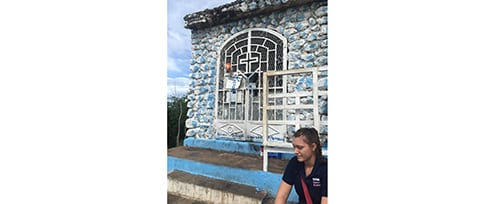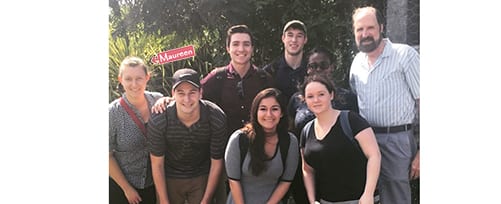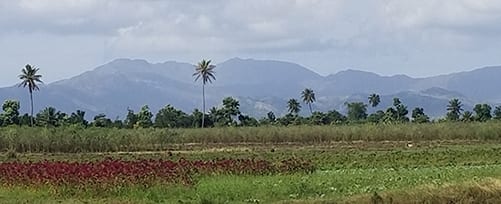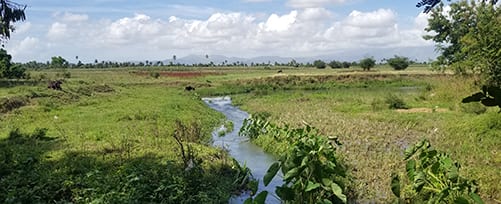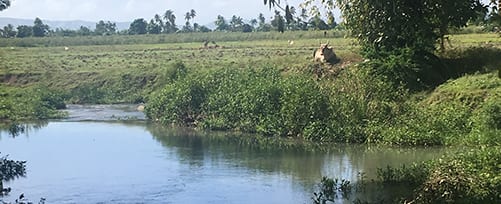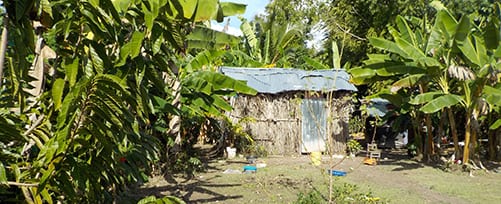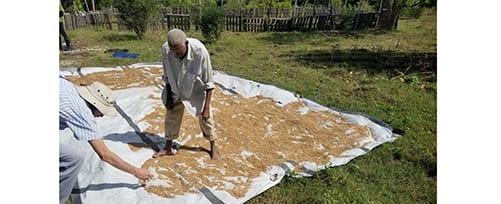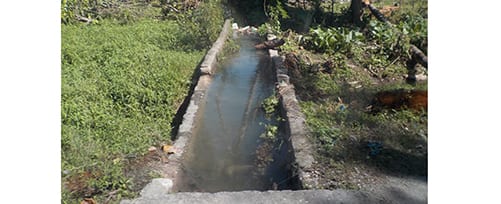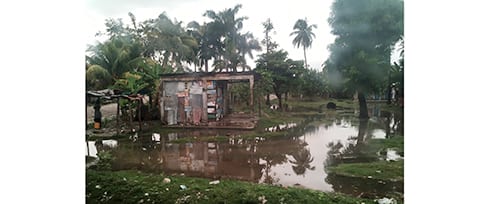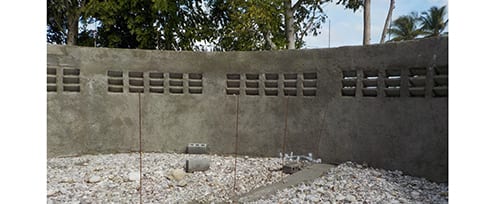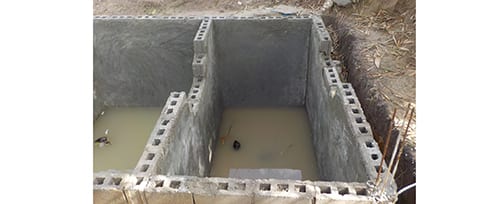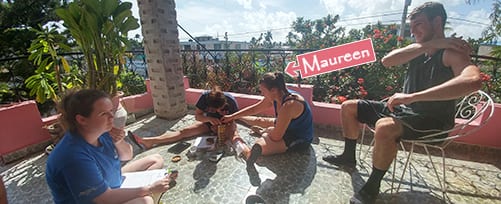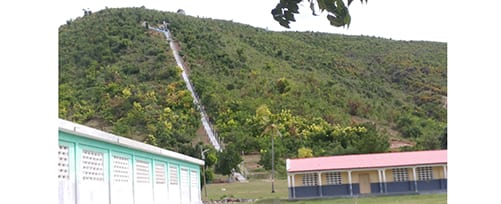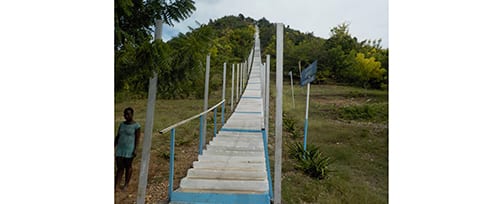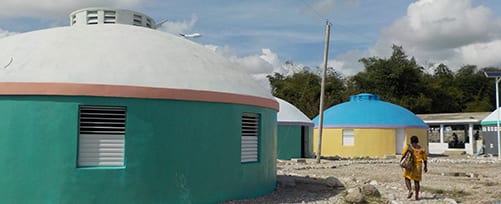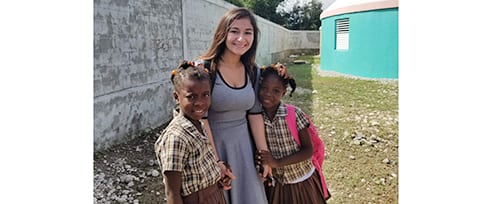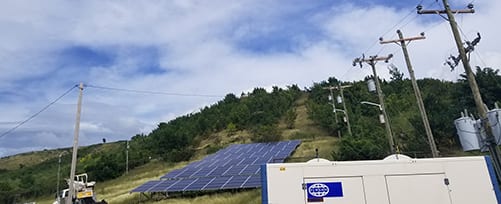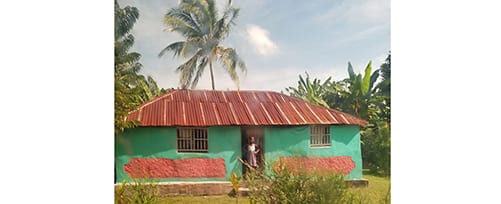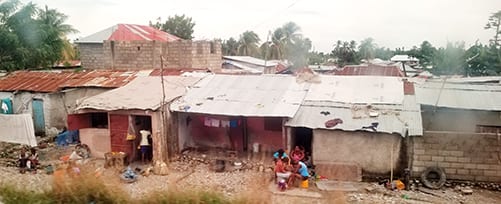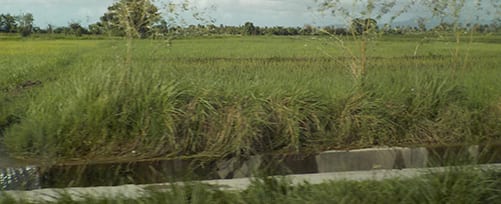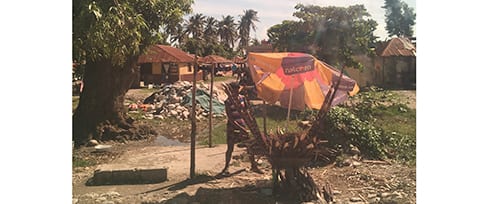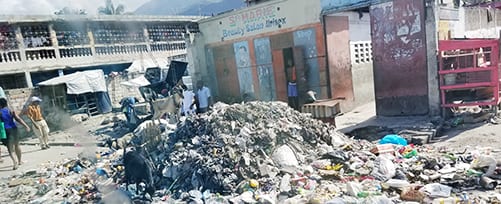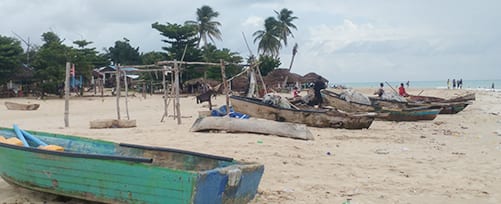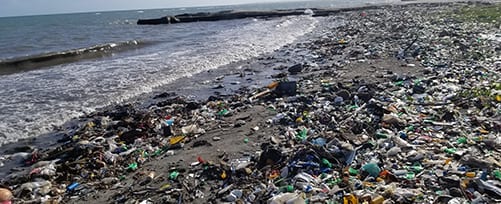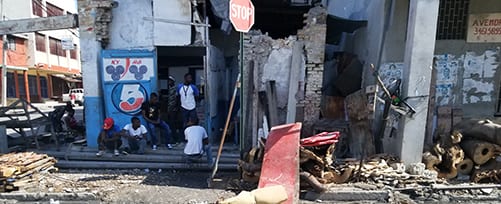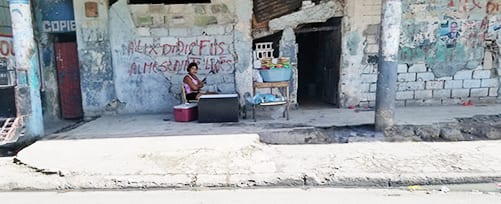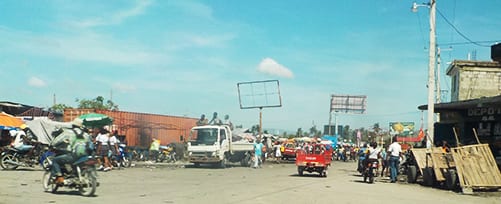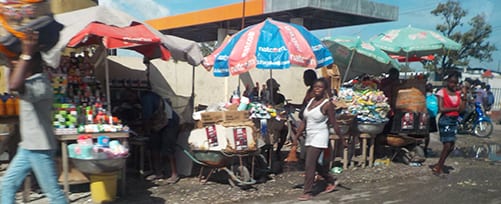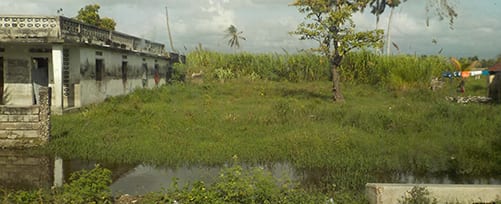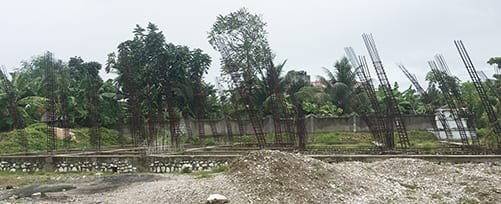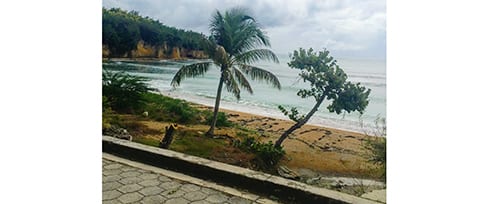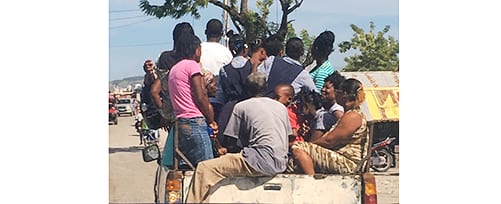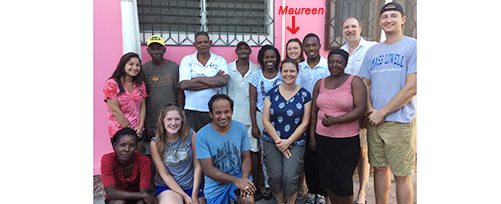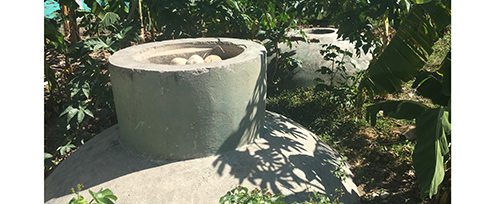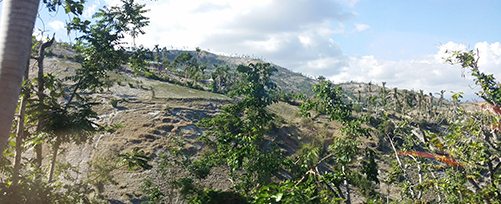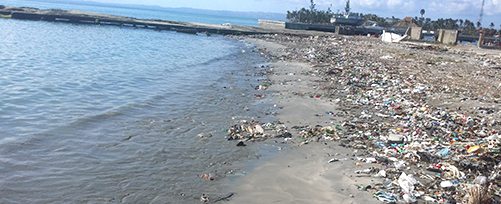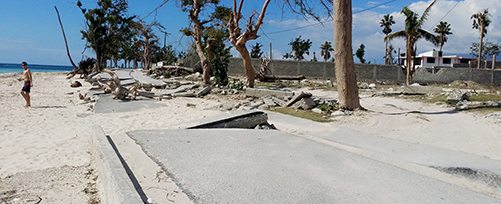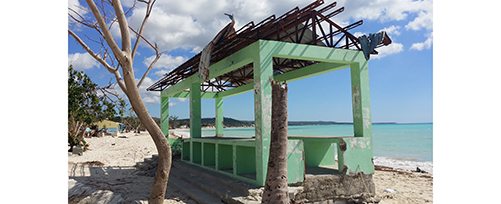In early January, TFMoran Civil Project Engineer Maureen Kelly traveled to the southern Haitian city of Les Cayes. Her traveling companions were five seniors in Civil Engineering from the University of Massachusetts Lowell (UML), as well as Physics professor and department head Dr. Robert Giles. Dr. Giles founded the Haiti Development Studies Center (HDSC), the educational facility and guest house where the group spent the week. The students are involved in multiple initiatives focusing on education and sustainable development. Maureen acts as a volunteer assistant on these projects.
BASH (Biodigester Aided Solutions in Haiti)
Several students on the trip are working on a biodigester. It collects a mixture of gases, called biogas, from decomposing organic material. The methane in biogas can power cookstoves, refrigerators, and even engines. The remaining material is ideal as a low-cost fertilizer, a vital resource for subsistence farming in nutrient-stripped soils. In Haiti the team learned more about local agricultural practices and available resources, which will inform further research and design. This project has been awarded funding through University design competitions and the team is now pursuing an EPA grant to study the effect of enzyme additions on biodigestion.
Civil & Environmental Engineering Alternative Capstone
As part of their senior capstone course, the students were tasked with exploring options for alternative waste treatment in Haitian households. In Haiti they visited a project site and performed basic soils testing in the area. This experience will inform their spring semester, during which they will focus on treatment options that address challenges specific to Haiti, where the freshwater supply is very vulnerable to contamination. The students will explore alternative methods of waste disposal that don’t put the water table at risk.
Coteaux & Port Salut
Coteaux is a coastal community where one of the Haitian students at HDSC, Dayana, grew up. Her family still lives there. During the trip our group visited Coteaux to see her family home, walk around the town, and visit a solar energy plant that powers three communities. The solar installation was still in disrepair following damage from Hurricane Matthew. Due to a lack of funds, even municipalities require extensive periods of time to rebuild after storms. The manager at the site was kind enough to give the group a tour of the facility and pointed out the backup generator that has replaced storm-damaged panels.
A major landmark in Coteaux is “500 Marches de la Médaille Miraculeuse,” or “500 Steps to the Miraculous Medal.” This site consists of an impressive set of 500 steps up to the top of a small mountain overlooking the south-western coastline of Haiti, with a sanctuary and statue at the top. The entire team, including Dr. Giles, our driver, and Dayana’s father all made it to the top. We paused at the peak for rest, reflection, and pictures while butterflies and lizards played around us. Upon our return to the base, legs a bit wobbly and lungs well worked, we turned back to see several goats jumping effortlessly on the stairs near the top.
Port Salut, the last destination of the week, boasts a beautiful beach. Last year when we visited Port Salut, it had only been a few months since Hurricane Matthew. The road was washed out and buildings were badly damaged. Trees were down along the coast and while swimming we would occasionally run into pieces of houses that had been washed into the ocean. This year the damage was still visible, but conditions were much improved and many businesses had reopened. It’s important that travelers learn just as much about all that is beautiful about Haiti as they do about the challenges that face our Caribbean neighbors. We always make time to appreciate the wonders of nature, cultural landmarks, and the growth of communities in the face of adversity.
Moving Forward
The Alternative Capstone team has now begun their Spring semester, and will travel to Haiti again in March. Those students who are working on the biodigester have had a very busy few weeks of research, writing, and revisions; their grant application to the EPA will be submitted in early February. With luck, they will be able to pay for their enzyme research and early installations using grant funds. Through donations from friends, family, and alumni, the Haiti Development Studies Center will continue to support student groups who choose to pursue projects based in Haiti.
For more information about the Haiti Development Studies Center or any of the projects discussed above, please feel free to visit www.uml.edu/Research/HDSC or contact Maureen Kelly at [email protected]

